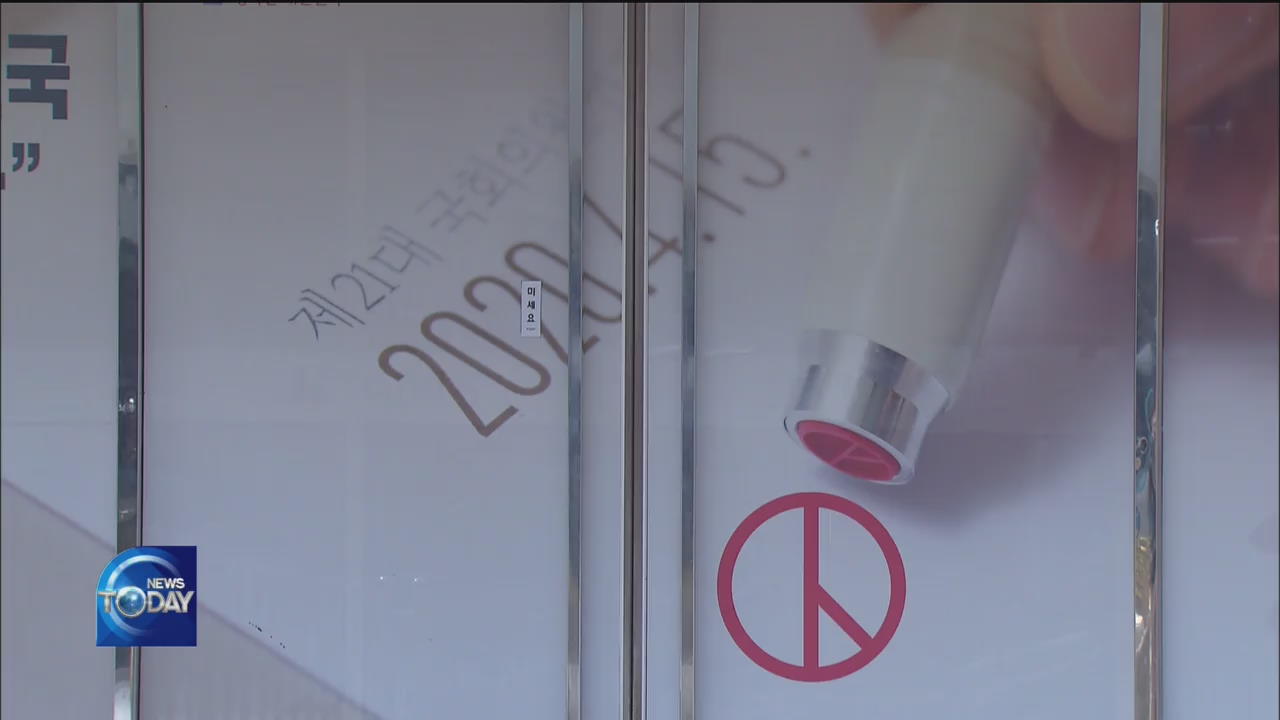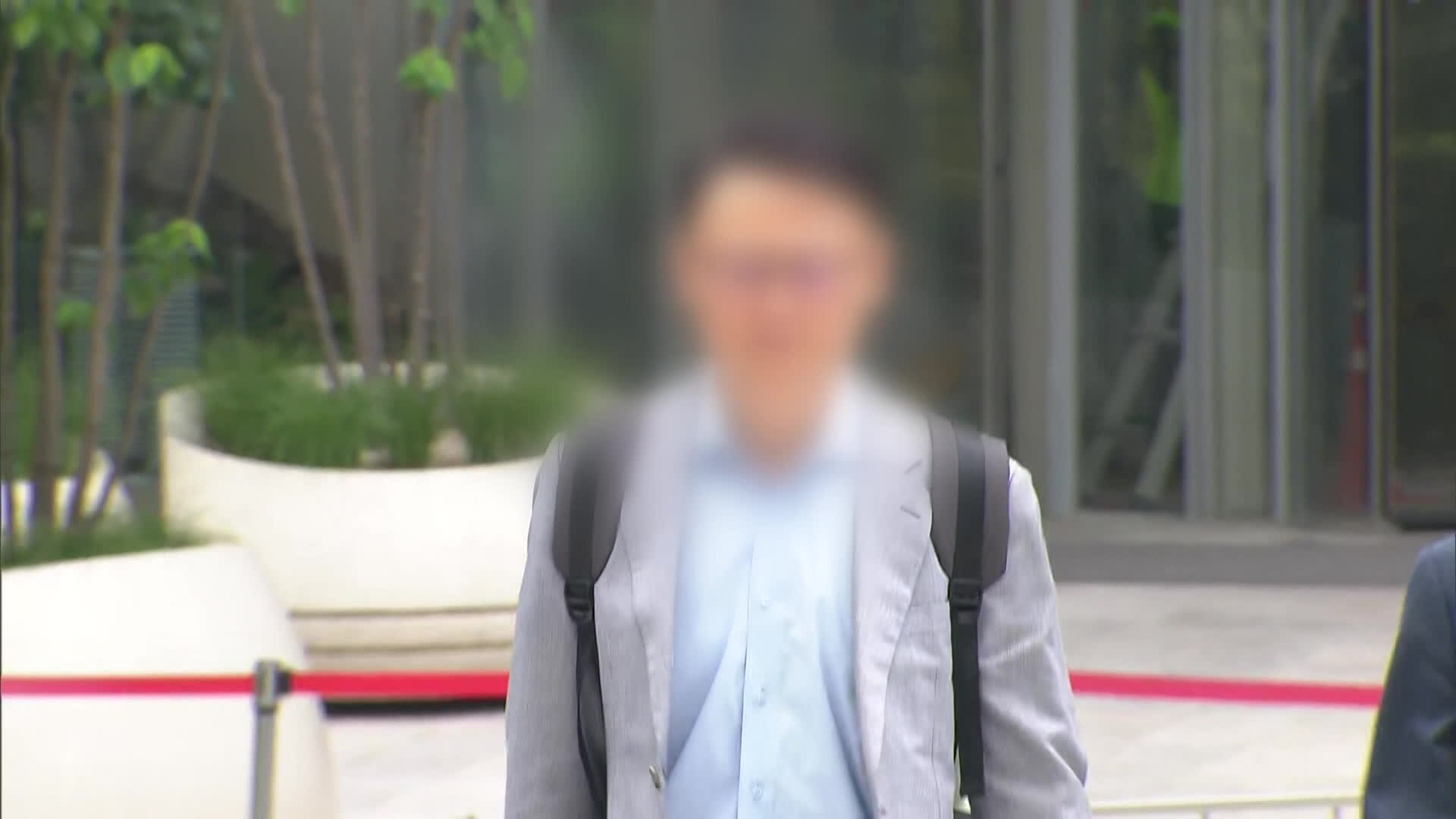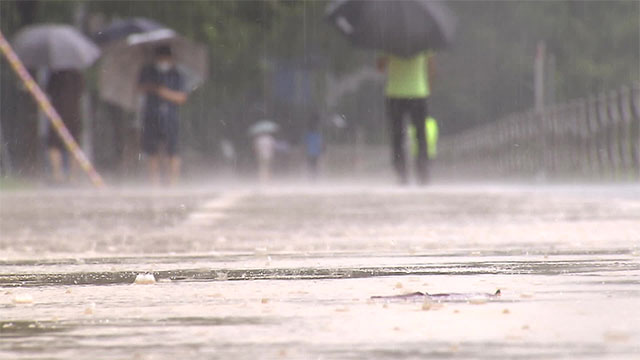RISING PROBLEMS OVER SELF-QUARANTINE
입력 2020.04.03 (15:08)
수정 2020.04.03 (16:46)
읽어주기 기능은 크롬기반의
브라우저에서만 사용하실 수 있습니다.
[Anchor Lead]
All passengers arriving in Korea from abroad are required to self-quarantine for two weeks to prevent the spread of the coronavirus. Many of the passengers choose to self-quarantine at home. But there are oftentimes cases where they end up spreading the virus to their family members.
[Pkg]
With the COVID-19 pandemic raging around the world, an average of some five thousand Korean nationals are returning home from abroad every day.
[Soundbite] (PASSENGER FROM U.K.(VOICE MODIFIED)) : "I should self-isolate at home. It's not just about me."
The number of self-quarantined people in the nation has surged to 23-thousand, as all inbound passengers are required to quarantine upon arrival from overseas. In a growing number of cases, they end up spreading the virus to their loved ones. A woman in her 40s from Gangnam-gu District who recently arrived from the U.K. infected her husband and child. Self-isolating at home with family members around is not easy. Quarantine authorities analyzed 30 early cases of COVID-19 in the nation and some 2,300 people who came into contact with them. The infection rate among family members was 7.56 percent. 42 times higher than the 0.18 percent infection rate in the general public. An analysis of 508 infections related to those who arrived from abroad in the past two weeks revealed that 41 cases of secondary infections have occurred.
[Soundbite] KWON JUN-WOOK(CENTRAL QUARANTINE HEADQUARTERS) : "Most of the secondary infections stemming from imported cases are likely to occur among family members living together."
Family members must be careful when having meals and conversations together as the virus can be transmitted through the droplets of saliva. A family from Incheon, where one of the members had been diagnosed with the coronavirus, managed to stay safe because all of them wore masks even at home and had meals separately. Families with infected members should use separate rooms and items, and disinfect their bathrooms frequently. Some local governments provide temporary living quarters to citizens. Those who may find it difficult to comply with isolation rules on their own can use them.
All passengers arriving in Korea from abroad are required to self-quarantine for two weeks to prevent the spread of the coronavirus. Many of the passengers choose to self-quarantine at home. But there are oftentimes cases where they end up spreading the virus to their family members.
[Pkg]
With the COVID-19 pandemic raging around the world, an average of some five thousand Korean nationals are returning home from abroad every day.
[Soundbite] (PASSENGER FROM U.K.(VOICE MODIFIED)) : "I should self-isolate at home. It's not just about me."
The number of self-quarantined people in the nation has surged to 23-thousand, as all inbound passengers are required to quarantine upon arrival from overseas. In a growing number of cases, they end up spreading the virus to their loved ones. A woman in her 40s from Gangnam-gu District who recently arrived from the U.K. infected her husband and child. Self-isolating at home with family members around is not easy. Quarantine authorities analyzed 30 early cases of COVID-19 in the nation and some 2,300 people who came into contact with them. The infection rate among family members was 7.56 percent. 42 times higher than the 0.18 percent infection rate in the general public. An analysis of 508 infections related to those who arrived from abroad in the past two weeks revealed that 41 cases of secondary infections have occurred.
[Soundbite] KWON JUN-WOOK(CENTRAL QUARANTINE HEADQUARTERS) : "Most of the secondary infections stemming from imported cases are likely to occur among family members living together."
Family members must be careful when having meals and conversations together as the virus can be transmitted through the droplets of saliva. A family from Incheon, where one of the members had been diagnosed with the coronavirus, managed to stay safe because all of them wore masks even at home and had meals separately. Families with infected members should use separate rooms and items, and disinfect their bathrooms frequently. Some local governments provide temporary living quarters to citizens. Those who may find it difficult to comply with isolation rules on their own can use them.
■ 제보하기
▷ 카카오톡 : 'KBS제보' 검색, 채널 추가
▷ 전화 : 02-781-1234, 4444
▷ 이메일 : kbs1234@kbs.co.kr
▷ 유튜브, 네이버, 카카오에서도 KBS뉴스를 구독해주세요!
- RISING PROBLEMS OVER SELF-QUARANTINE
-
- 입력 2020-04-03 15:18:34
- 수정2020-04-03 16:46:31

[Anchor Lead]
All passengers arriving in Korea from abroad are required to self-quarantine for two weeks to prevent the spread of the coronavirus. Many of the passengers choose to self-quarantine at home. But there are oftentimes cases where they end up spreading the virus to their family members.
[Pkg]
With the COVID-19 pandemic raging around the world, an average of some five thousand Korean nationals are returning home from abroad every day.
[Soundbite] (PASSENGER FROM U.K.(VOICE MODIFIED)) : "I should self-isolate at home. It's not just about me."
The number of self-quarantined people in the nation has surged to 23-thousand, as all inbound passengers are required to quarantine upon arrival from overseas. In a growing number of cases, they end up spreading the virus to their loved ones. A woman in her 40s from Gangnam-gu District who recently arrived from the U.K. infected her husband and child. Self-isolating at home with family members around is not easy. Quarantine authorities analyzed 30 early cases of COVID-19 in the nation and some 2,300 people who came into contact with them. The infection rate among family members was 7.56 percent. 42 times higher than the 0.18 percent infection rate in the general public. An analysis of 508 infections related to those who arrived from abroad in the past two weeks revealed that 41 cases of secondary infections have occurred.
[Soundbite] KWON JUN-WOOK(CENTRAL QUARANTINE HEADQUARTERS) : "Most of the secondary infections stemming from imported cases are likely to occur among family members living together."
Family members must be careful when having meals and conversations together as the virus can be transmitted through the droplets of saliva. A family from Incheon, where one of the members had been diagnosed with the coronavirus, managed to stay safe because all of them wore masks even at home and had meals separately. Families with infected members should use separate rooms and items, and disinfect their bathrooms frequently. Some local governments provide temporary living quarters to citizens. Those who may find it difficult to comply with isolation rules on their own can use them.
All passengers arriving in Korea from abroad are required to self-quarantine for two weeks to prevent the spread of the coronavirus. Many of the passengers choose to self-quarantine at home. But there are oftentimes cases where they end up spreading the virus to their family members.
[Pkg]
With the COVID-19 pandemic raging around the world, an average of some five thousand Korean nationals are returning home from abroad every day.
[Soundbite] (PASSENGER FROM U.K.(VOICE MODIFIED)) : "I should self-isolate at home. It's not just about me."
The number of self-quarantined people in the nation has surged to 23-thousand, as all inbound passengers are required to quarantine upon arrival from overseas. In a growing number of cases, they end up spreading the virus to their loved ones. A woman in her 40s from Gangnam-gu District who recently arrived from the U.K. infected her husband and child. Self-isolating at home with family members around is not easy. Quarantine authorities analyzed 30 early cases of COVID-19 in the nation and some 2,300 people who came into contact with them. The infection rate among family members was 7.56 percent. 42 times higher than the 0.18 percent infection rate in the general public. An analysis of 508 infections related to those who arrived from abroad in the past two weeks revealed that 41 cases of secondary infections have occurred.
[Soundbite] KWON JUN-WOOK(CENTRAL QUARANTINE HEADQUARTERS) : "Most of the secondary infections stemming from imported cases are likely to occur among family members living together."
Family members must be careful when having meals and conversations together as the virus can be transmitted through the droplets of saliva. A family from Incheon, where one of the members had been diagnosed with the coronavirus, managed to stay safe because all of them wore masks even at home and had meals separately. Families with infected members should use separate rooms and items, and disinfect their bathrooms frequently. Some local governments provide temporary living quarters to citizens. Those who may find it difficult to comply with isolation rules on their own can use them.
이 기사가 좋으셨다면
-
좋아요
0
-
응원해요
0
-
후속 원해요
0










![[HEADLINE]](https://news.kbs.co.kr/data/news/2020/04/03/4416933_10.jpg)

![[단독] 위성락 실장 “전작권 협상 카드 아냐”…<br>차관 인선 발표](/data/layer/904/2025/07/20250713_krfuHu.jpg)




이 기사에 대한 의견을 남겨주세요.